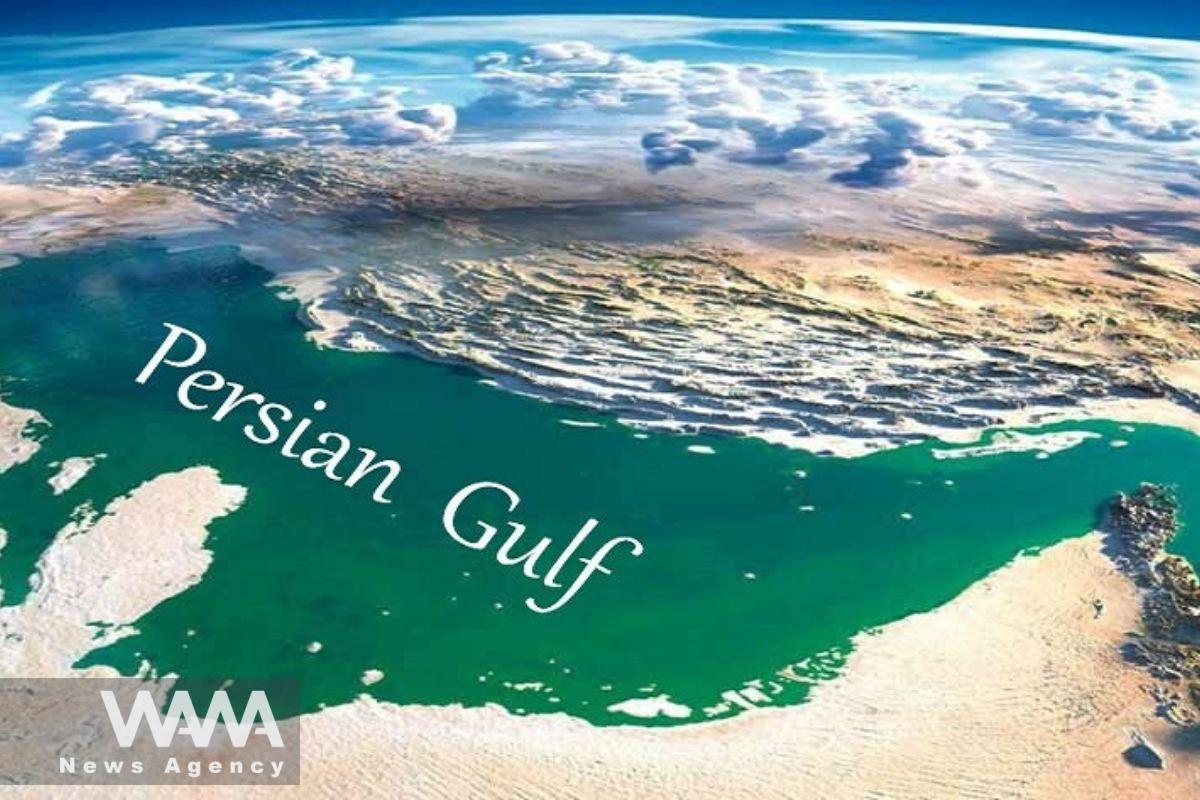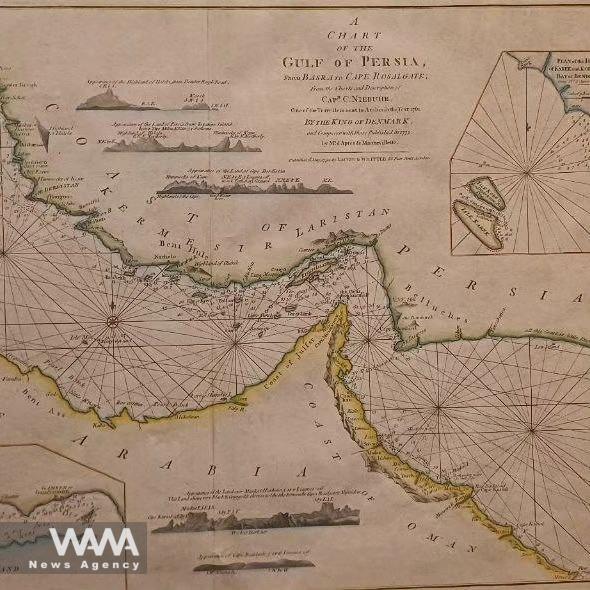The “Persian Gulf” and Trump’s Risky Gamble in the Middle East
WANA (May 08) – If the words “Arabian Gulf” come out of U.S. President Donald Trump’s mouth in the coming days, it could spark a full-blown diplomatic crisis right at the boiling point of the Middle East. This is not just a “name”—not for Iranians, nor for history. It is seen as a blatant interference in Iran’s historical, regional, and cultural identity.
Recently, the Associated Press, citing two anonymous U.S. officials, reported: “Trump plans to announce during his upcoming trip to Saudi Arabia that the United States will henceforth refer to the Persian Gulf as the Arabian Gulf.” According to American sources, this is part of a broader strategy to redefine the U.S.’s position in the region.
This isn’t the first time Trump has waged war against reality through words. In the past, he referred to the Gulf of Mexico as the “American Gulf”—a move widely ridiculed around the world. But the Middle East is no laughing matter.
In recent months, Google Maps has controversially started displaying the term “Arabian Gulf” in parentheses next to “Persian Gulf.” Back in 2012, Iran threatened to sue Google for removing the name Persian Gulf altogether.

What’s Behind Trump’s Move?
Analysts believe Trump’s move is aimed at escalating tensions between Iran and Arab states—especially Saudi Arabia. In recent months, Saudi Arabia has entered a new phase of diplomacy with Iran, even discussing expanding economic and security ties. This shift is unsettling for Washington, especially under Trump’s foreign policy doctrine.
During the Yemen war, when the U.S. asked for Saudi ground troops, Riyadh declined. Not only did Saudi Arabia avoid a ground invasion, it began moving closer to Iran. Now that Tehran and Riyadh are publicly and officially engaging, Trump seems eager to drive a wedge between the two regional powers once more.
Trump’s goal is to widen the rift between Iran and the Arab states of the Persian Gulf—a division that, if deepened, could give the U.S. more leverage in negotiations on issues like the Gaza war, arms sales, and dealings with Israel.
Distorting Names as a Political Weapon
“Persian Gulf” is not just a geographic term; it’s a matter of national pride and legal significance with strong international backing. The United Nations, UNESCO, and most credible global institutions recognize “Persian Gulf” as the sole official name.
So, using the term “Arabian Gulf” isn’t merely a verbal slip—it’s an intentional act aimed at historical distortion and destabilizing the regional balance.
No Political Agenda Can Erase Persian Gulf Name
Permanent Mission of the Islamic Republic of #Iran to the United Nations in Geneva:
“Throughout history—from ancient Greek historians to medieval Muslim geographers—the body of water south of the Iranian plateau has been… pic.twitter.com/acf5c69l54
— WANA News Agency (@WANAIran) May 8, 2025
The name “Persian Gulf” has roots not only in geography but also in history, archaeology, international law, and classical literature. From Herodotus to Ptolemy, from 18th-century German maps to official U.N. documents, the same name is used: Persian Gulf.
In 2006, the United Nations officially stated: “The term Persian Gulf is the only official designation for this body of water in all U.N. communications and documents.”
Despite this, the U.S. military has repeatedly and deliberately used the term “Arabian Gulf” in recent years—a move analysts view not as a mistake, but as a subtle policy to undermine Iran’s historical legacy.
Trump and the Geopolitics of Language
Trump is a politician who wields words like weapons. Known for his dramatic tactics, media shock value, and strategic enemy-making, he now appears to be preparing a new battleground: rewriting geography.
Reza Nasri, a prominent legal expert and international affairs analyst, warned: “Nothing unites Iranians of all political stripes against America like using a fake name for the Persian Gulf.”
At a time when the U.S. government claims it seeks dialogue and engagement with the Iranian people, Trump’s move is bound to provoke a fresh wave of public outrage. In the collective memory of Iranians, altering the name of the Persian Gulf is equated with an assault on national pride and an insult to cultural history. Many believe it carries deeper consequences than most sanctions or economic pressures.
When even the Saudis called Persian Gulf, “the Persian Gulf”
During the Qajar era, Faisal bin Turki, then head of the Al Saud family, wrote a letter to Naser al-Din Shah mentioning the name #PersianGulf.
This letter was recently published from the archives of #Iran‘s Foreign… pic.twitter.com/zxgSBMUuuU
— WANA News Agency (@WANAIran) May 7, 2025
Iran’s Reaction
Iranian Foreign Minister Abbas Araghchi responded to the report, stating: “Changing the historical name of the Persian Gulf is not a mistake—it reflects a hostile intent toward Iran.”
Iranian social media users also reacted strongly:
“They forged the name of the Persian Gulf—suspend the negotiations!”
“Forging the Persian Gulf is worse than dismantling our centrifuges.”
Some analysts argue that if Iran fails to respond clearly, Arab states might interpret it as a sign that “neighborhood diplomacy” was merely a tool to contain Iran. For Iran, this is a red line. A weak stance would signal leniency to the other side. Thus, many analysts recommend:
1. Suspending or canceling ongoing talks with the U.S. in response
2. Issuing a strong, official, and public position from Iran’s highest institutions
3. Urging Saudi Arabia to formally recognize and use the historical name “Persian Gulf”
It’s crucial to emphasize: even if Saudi Arabia doesn’t adopt this stance, the naming of the gulf is not up to the will of the U.S. or regional powers—it is grounded in history, geography, and the will of the Iranian people. This gulf is, and will remain, the Persian Gulf.

The Name of the Persian Gulf Displayed at the National Museum of Qatar / WANA News Agency
But What If Politics Redefines History?
This is where the reader must take a step back and view the bigger picture: do politicians have the right to redefine geographic terms for political gain? If “Persian Gulf” is erased today, what name is next tomorrow? Can names be annulled like treaties? Or are they part of humanity’s shared heritage?













